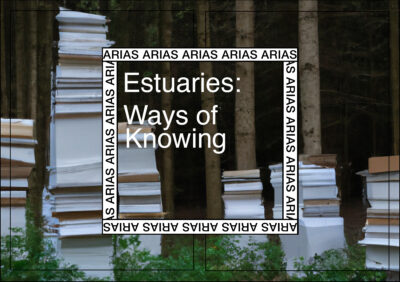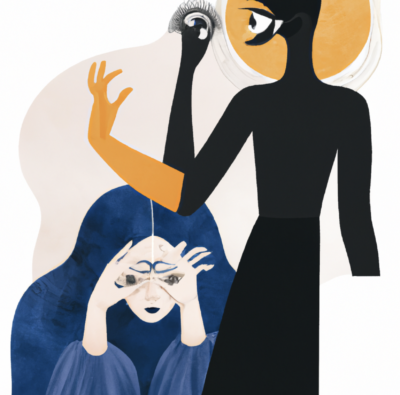
Estuaries: Ways of Knowing
[un]learning scripts
A script can be performed.
In theatre, actors play a story that’s written in a script.
The script tells them what to say, how to behave, how important or trivial their role is, and when to enter and leave the stage.
Real-life stories also have scripts.
Sometimes we are aware of them, but scripts can be performed so often that they become a habit, a norm, a dominant way of doing things. These scripts can be about how you and your family behave at home, the way you are seen by your skin colour/sexuality/ethnicity, the rules in a school, how institutions are organised, or even our (dis)connection to nature.
Often scripts aren’t written in ink. They get inscribed in us through performing specific roles, according to certain ideas, over and over again. The reenactment remains, but the script itself gets forgotten, as well as the narratives, voices and ideas that were discarded or left out in the first place. However, as with any script that is written or made up, there is always a possibility to rewrite it, to revise it.
Who should re-write the scripts we follow? How can we unlearn the roles that have been taught to us? How can we re-learn our roles through new ways of knowing? Which narratives should be given priority as we re-write? And when engaging with less visible narratives, how can we tell a greater variety of stories, making space for both suffering and joy?
As a platform that brings together artists-researchers from different backgrounds to engage with the complex questions of today’s world, ARIAS feels the need to unpack these and other related questions together with their (extended) network. That is why we are starting [un]learning scripts, a long-term project through which we are learning to become aware of the underlying scripts that exist in collaborative research in scientific institutions, art spaces and communal contexts.
However, before rushing to the act of [un]learning, we want to understand which (neglected) stories matter, and moreover, for whom? In research, scripts are ideas about knowledge: what it is, how and by whom it can be created, where it can be found, how it should be used, when it can be trusted … We believe these ideas are often exclusive and need to be diversified (in human and more-than-human terms). In order to include your experience, we have designed a questionnaire to understand which perspectives are lacking, and to locate the most important themes and questions for you.
Through a series of gatherings, [un]learning scripts is also an attempt to query, undo, and expand the ‘we’ in the project. The way we (un)learn the scripts vary, and these different ways can complement but also clash with one another. Another goal of the project is to create an ethical space where we work through these tensions across institutions, communities, collectives, and also ourselves, maintaining a reflexive point of view throughout the project.
When we speak about the ARIAS extended network, we mean artists-researchers from art schools and academic institutions we partner with, the cultural organisations we connect to; but also independent art spaces, activist communities, and contexts whose interests and work resonate with the questions of [un]learning scripts. We are aware that the issues raised in this project have been and are continuously worked on in-depth elsewhere as well, and we hope to build further on this diverse body of practices and discourses.
We especially invite people from diasporic communities, BIPOC, queer and trans communities, and people with varying abilities – the ones who feel they are often falling outside the imagined, normative ‘roles’ in the given script – to respond and give shape to these series of gatherings, re-thinking together what knowledge is/should be about in research practices of all kinds. You will define what can be considered as knowledge: oral histories and traditions, rituals, lived experiences, embodied practices, (personal) writings, more-than-textual forms, … and so on.
Your input and answers in the questionnaire will directly shape the programming of this project. Through continuous conversation and exchange, [un]learning scripts will be co-created by all of us working together in learning and unlearning as we listen, share and re-write. From the questionnaire, we will be inviting respondents/you to further co-create this project by joining our programming conversations, leading one of the upcoming workshops or participating in them.
Looking forward to the dialogue, we thank you in advance for your time and interest in responding and connecting with us.
Grateful,
On behalf of ARIAS
Amir Baroud, Haitian Ma, Nienke Scholts, Mariana Fernandez
.



